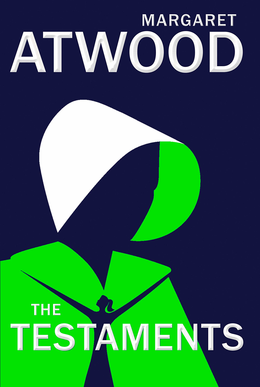In Trumpworld, Atwood’s The Testaments gives hope that truth will always have power
 I’m currently reading Margaret Atwood’s ‘The Testaments’ – I had it on pre-order on Kindle so it dropped into my device overnight on Sept. 9 – and as always, she’s assured and engaging. The sequel to ‘The Handmaid’s Tale’ continues to tell the story of reproductive slavery, religious fundamentalism, and the extreme environmental disaster that has brought the world the Republic of Gilead.
I’m currently reading Margaret Atwood’s ‘The Testaments’ – I had it on pre-order on Kindle so it dropped into my device overnight on Sept. 9 – and as always, she’s assured and engaging. The sequel to ‘The Handmaid’s Tale’ continues to tell the story of reproductive slavery, religious fundamentalism, and the extreme environmental disaster that has brought the world the Republic of Gilead.
Instead of the US government’s vast bureaucracy and secular rule of law, there is the rigidly Christian (and patriarchal) Gilead hierarchy – the commanders ever so slightly reminiscent of the IRGC, the Iranian Revolutionary Guards Corps. Instead of a woman’s right to choose (and to regard her body as her temple), the Handmaids are human cattle – mere wombs, who produce children much as livestock specialists might breed from a heifer with.
But we knew all of that before. ‘The Handmaid’s Tale’, Ms Atwood’s 1985 novel, told us.
What makes ‘The Testaments’ important?
I haven’t read the whole book yet, but thus far, it seems to me, this novel tells us Gilead may not last. That it would fail and that Aunt Lydia, zealous enforcer for the Gilead regime, is not a true believer, signifies hope.
This is important for us here and now. Remember we live in an age in which a new law renders most abortions in Alabama a crime punishable by up to 99 years in prison.
And one more thing about ‘The Testaments’: It shows that truth is always powerful.

